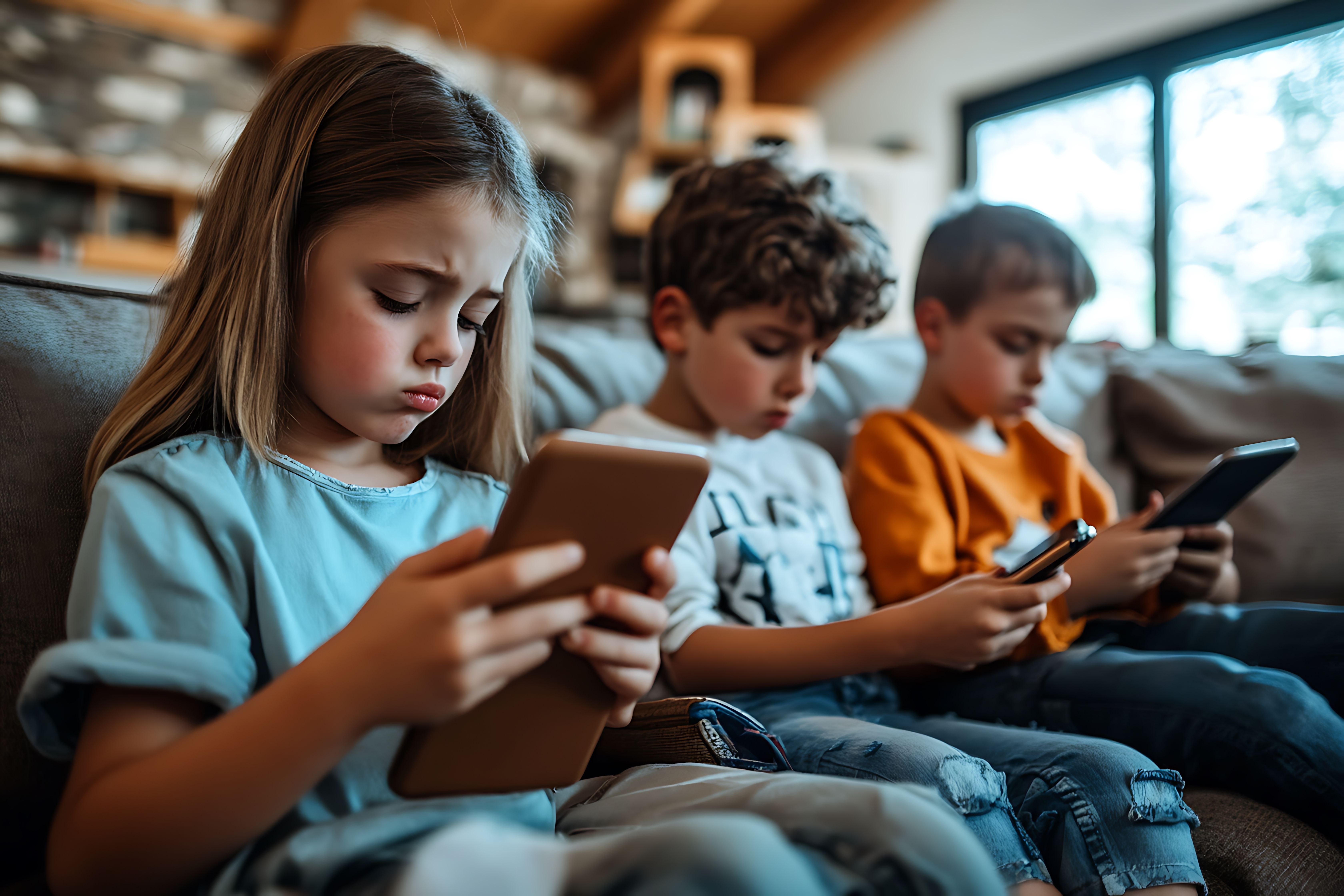digital parentingpersonal developmentscreen addiction
16.07.2025
Aggressiveness, Impulsivity, and Irritability – The Effects of Excessive Screen Time on Children

Vacations bring relaxation, but also a risk often overlooked: the sharp increase in the time children spend in front of screens. According to recent data, during summer, digital content consumption increases by approximately 25%. This reality raises serious concerns regarding the cognitive, emotional, and behavioral development of young children.
Preschoolers are the most exposed age group. Psychologist Sheri Madigan, cited by JAMA Pediatrics, emphasizes that 75% of children under 2 years old exceed the recommended screen time limit. In fact, most children aged 0 to 14 often spend more than two hours a day in front of devices — a threshold considered harmful in the absence of balanced and supervised use.
The World Health Organization recommends complete avoidance of screens for children under 2 years old (with the exception of occasional video calls). Between the ages of 2 and 5, the recommended screen time is a maximum of one hour per day, with a focus on educational content. For older children, it is essential to maintain balance between digital use, play, social interaction, and physical activity.
Prolonged screen use affects not only attention or sleep but also creates a chain reaction with serious behavioral implications: impulsivity, irritability, emotional regulation difficulties, and even aggressiveness. These manifestations have been highlighted in numerous recent studies and are increasingly observed in clinical practice.
Constant exposure to digital content repeatedly activates the brain’s reward system through dopamine release, which makes real-life activities seem boring. According to researcher Catherine L’Ecuyer, children become increasingly restless in the absence of screens and dependent on fast stimuli to regulate their emotions.
Seemingly harmless practices — such as calming a child with a phone during difficult moments — can create a dangerous pattern: the child learns that only through screens can they manage discomfort, thereby avoiding the development of emotional autonomy. Over time, this behavior affects the development of language, creativity, and social skills.
Additionally, excessive screen time limits real interactions that are essential for learning empathy, nonverbal communication, and cooperation. Moreover, the blue light emitted by electronic devices interferes with the circadian rhythm and affects sleep quality — a key factor for children’s mental health.
If parents observe increased irritability, concentration difficulties, language delays, or aggressive behavior, it is important not to ignore these signs. Specialists recommend early intervention, with a focus on rebalancing the daily routine. Occupational therapy, speech therapy, and play therapy can support the redirection of the child’s development.
It is crucial that parents do not simply focus on "reducing screen time" but instead offer engaging and meaningful alternatives. Creative activities (building, drawing, role-playing), physical movement, reading together, and family engagement are key elements that support emotional regulation and the development of social skills.
The message is not “no screens,” but rather “with balance and purpose.” Digital time should be part of a balanced lifestyle, based on real connection, active play, and authentic relationships. In an increasingly digitalized world, the parent remains the essential guide in raising a healthy, balanced, and empathetic child.
This is where Tutorina comes in — an innovative Romanian app developed with the support of psychologists that goes beyond simple parental control. Tutorina introduces an educational model based on collaboration and active negotiation between parent and child, where rules are understood and accepted, not imposed.


